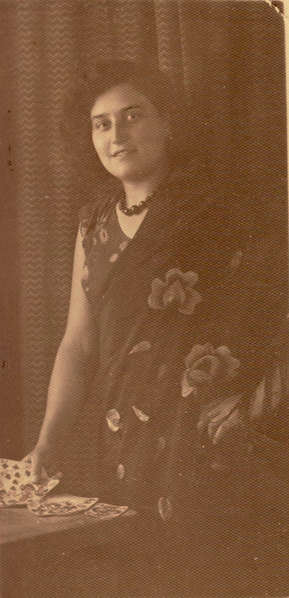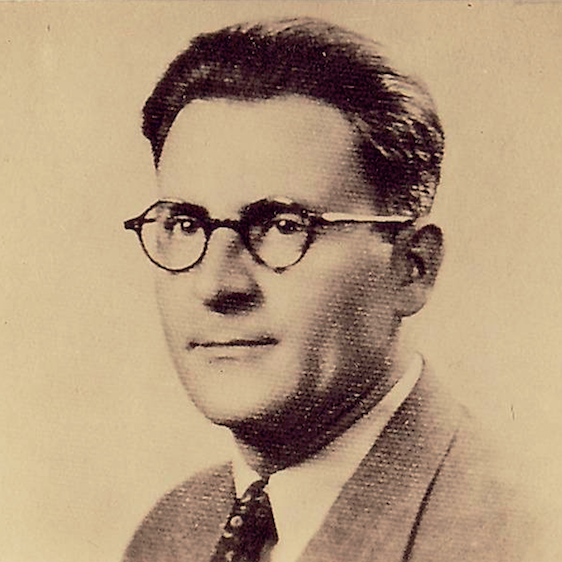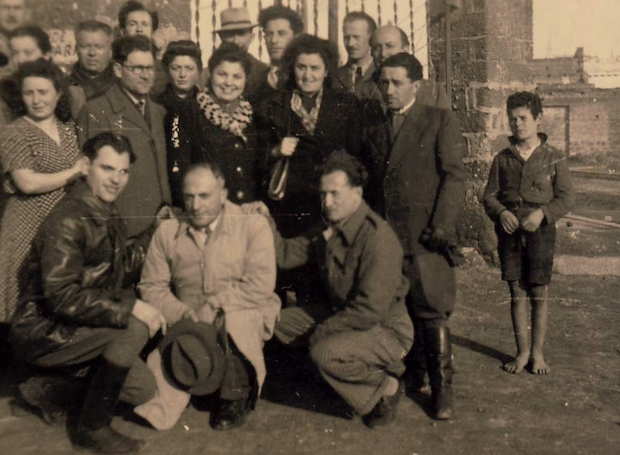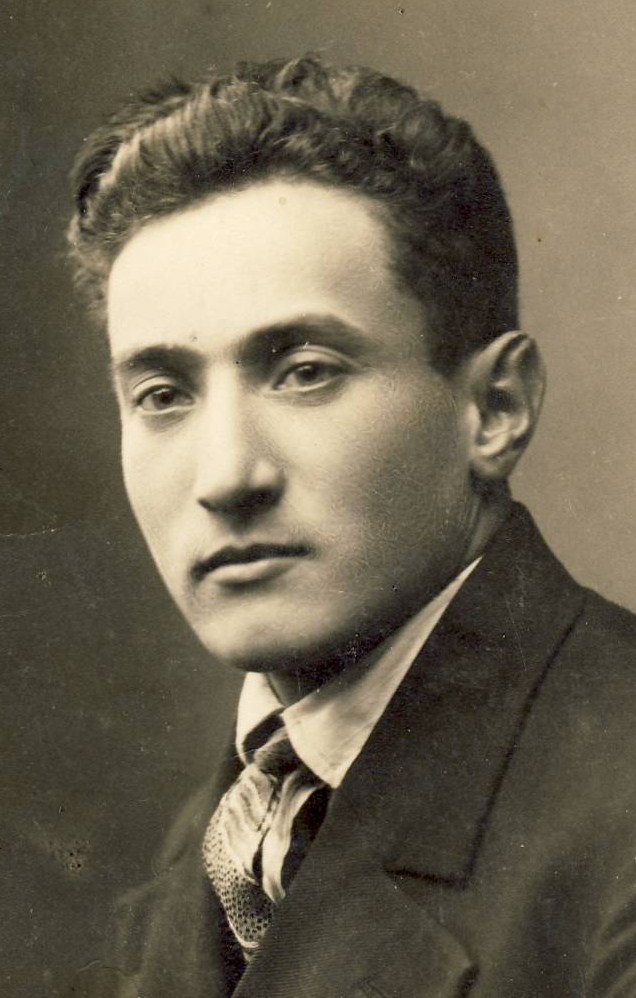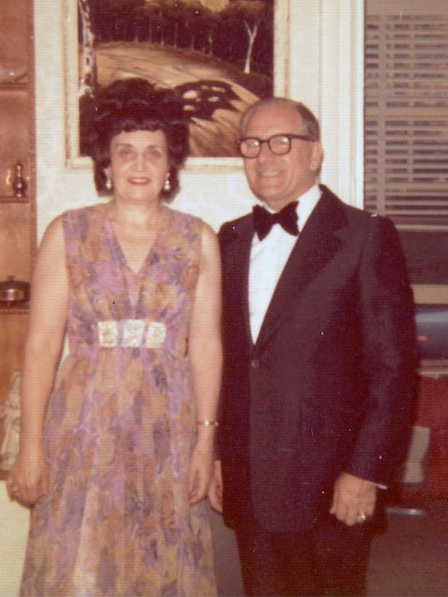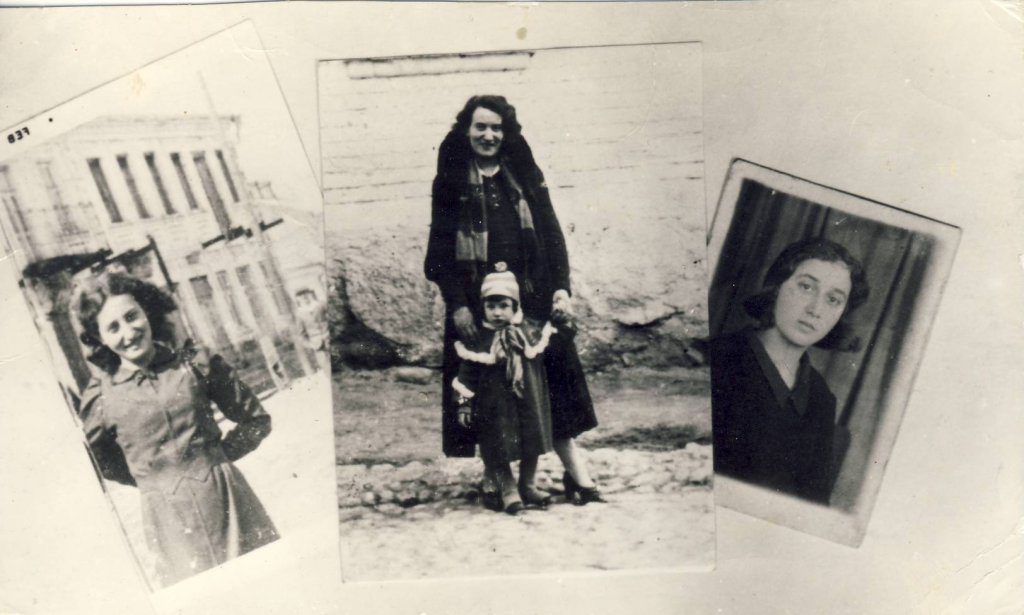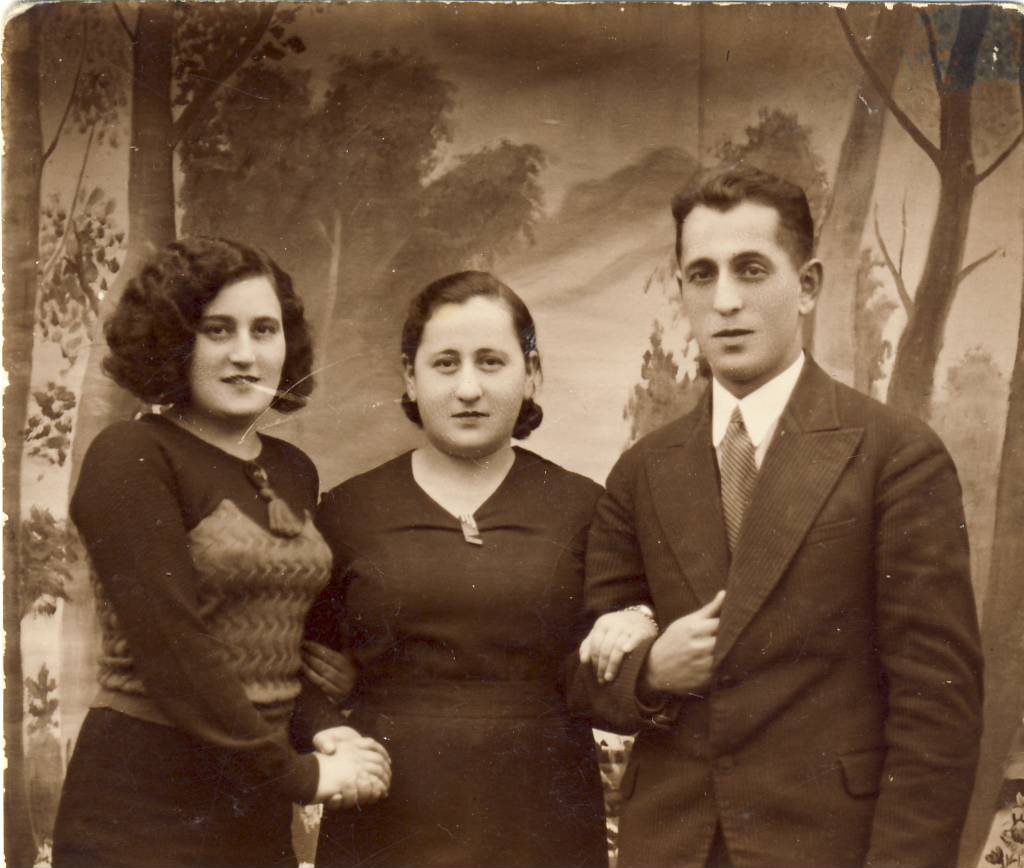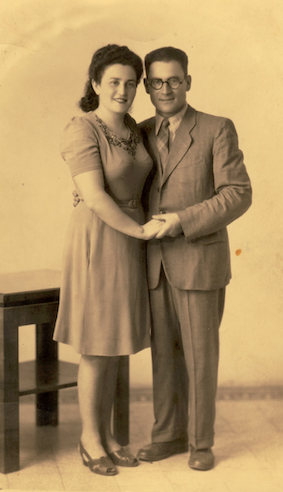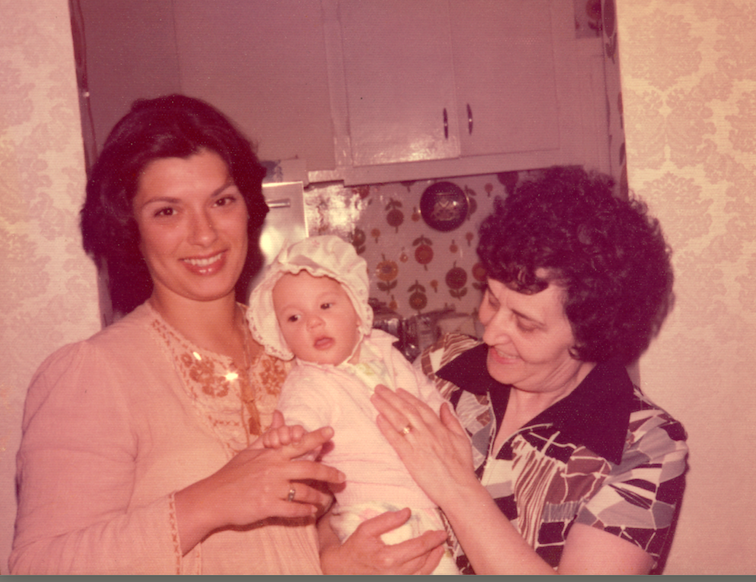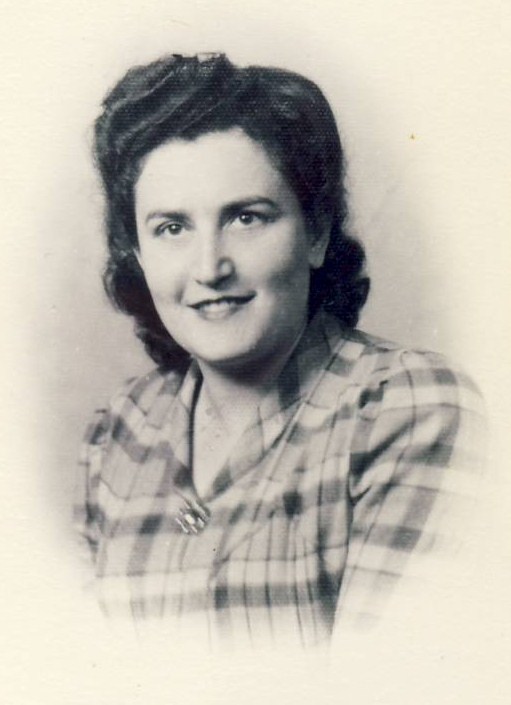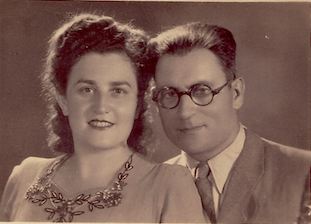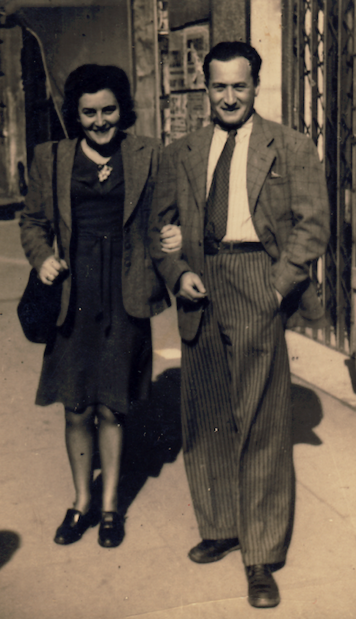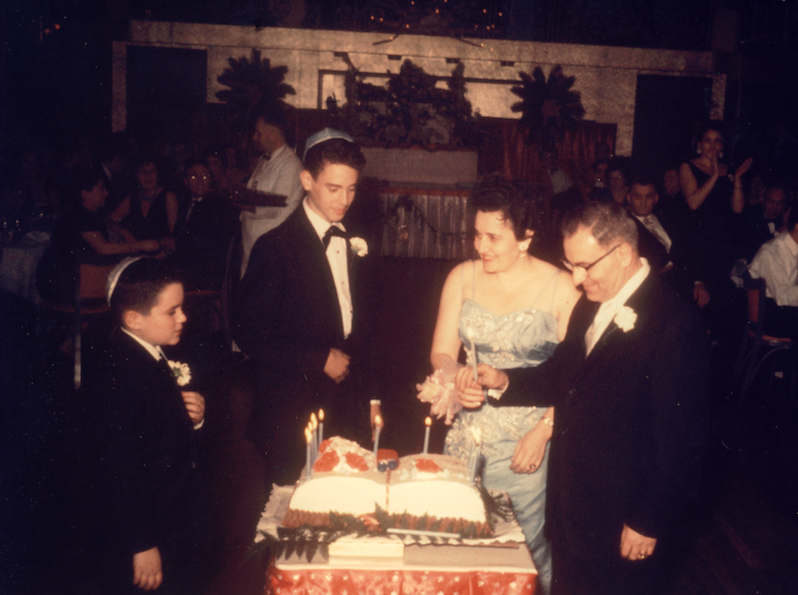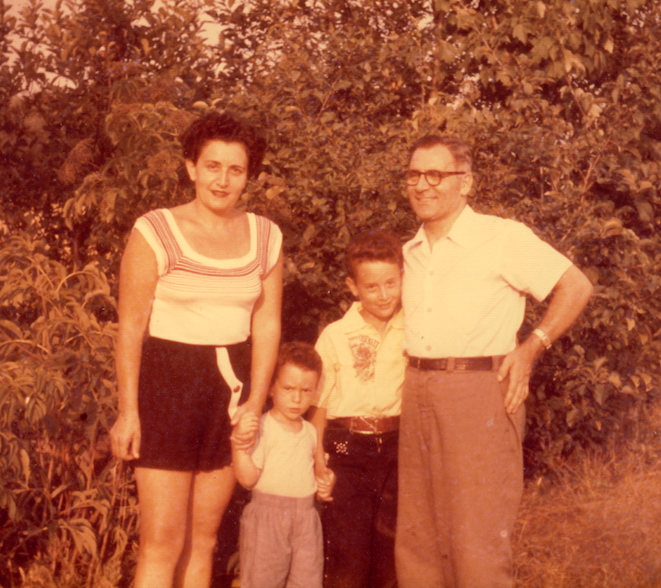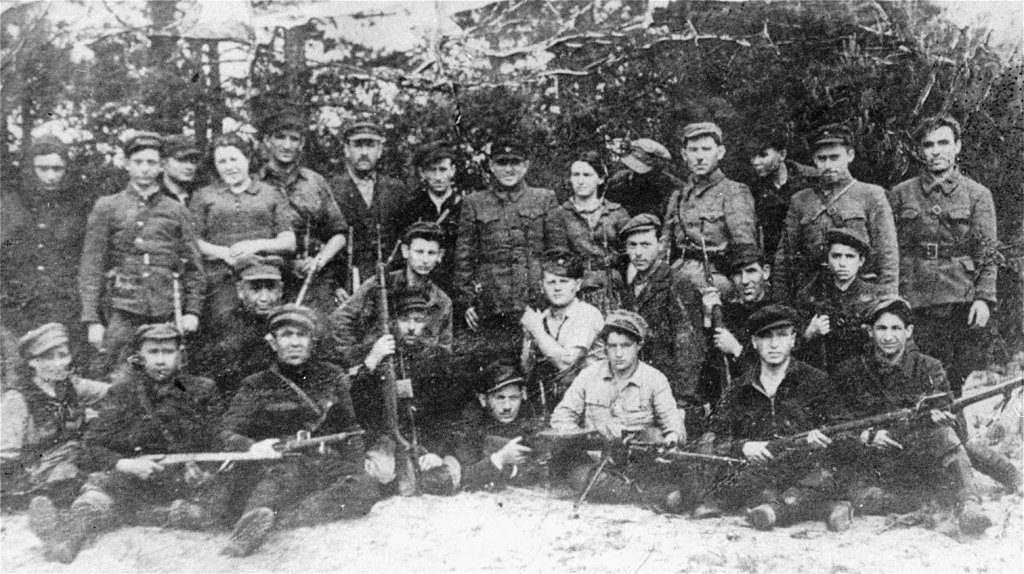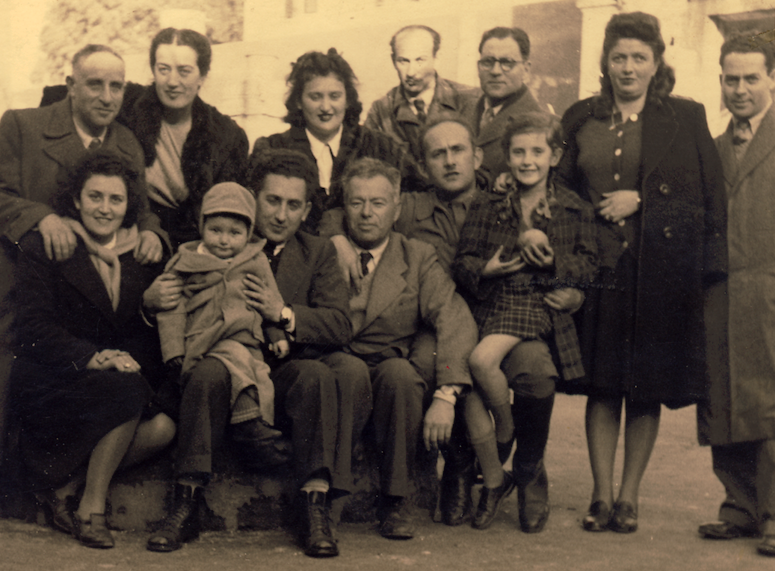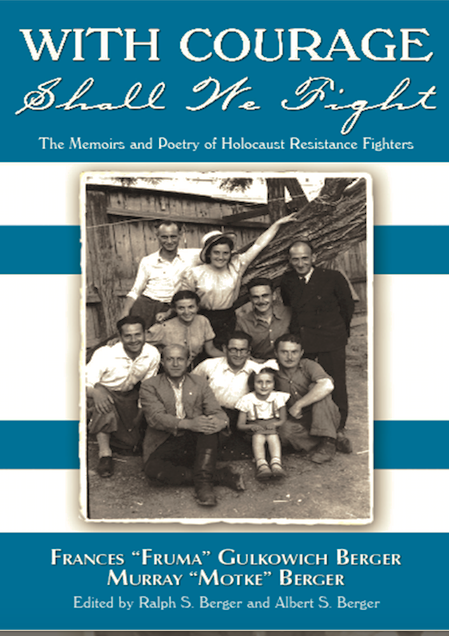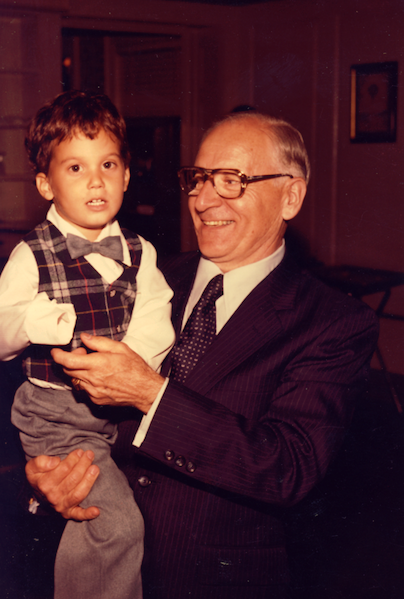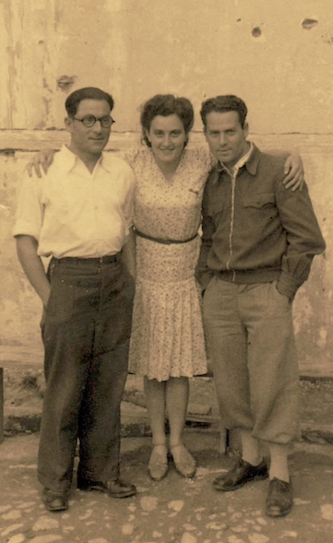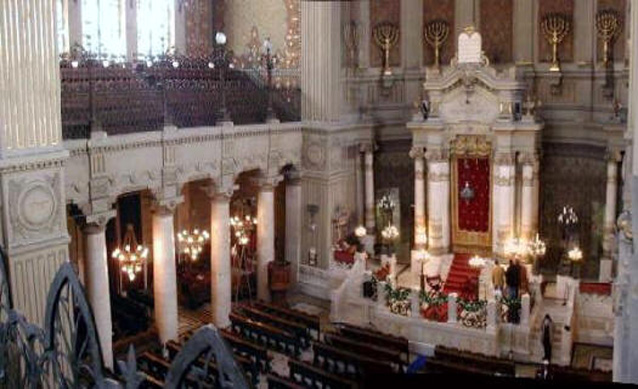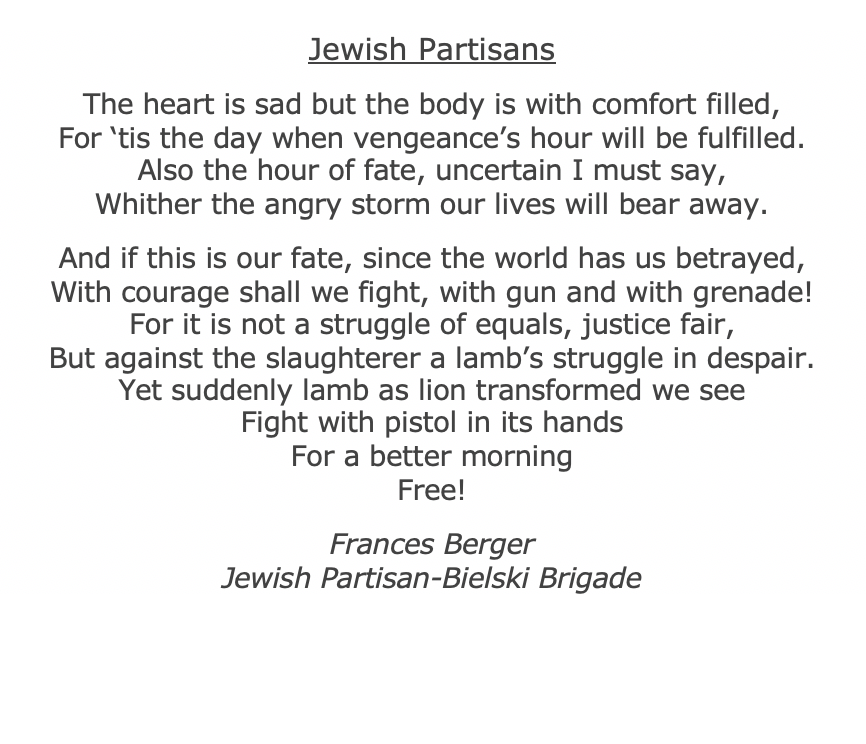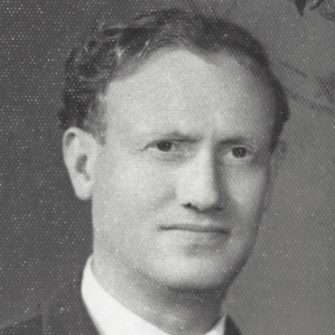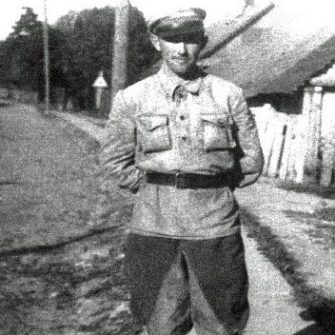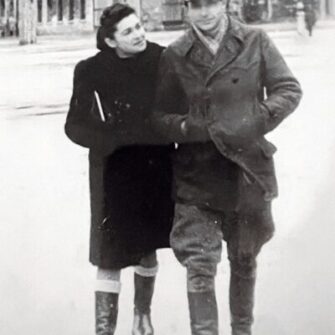Frances (Fruma Gulkowich) Berger was raised in the shetl of Korelitz, Poland, a town of 1500 Jews in the county of Novogrudok. She had three sisters, Feigle, Grunia, and Brina, and one brother, Ben-Zion. Though her father was very religious, Frances was quite progressive. As a teenager, she belonged to two different Zionist groups, wrote prose and poetry, and acted in community theater. Frances very much wanted to emigrate to Palestine but was unable to do so on account of the British mandate. So she obtained papers to go to South Africa; three of her aunts had already emigrated there. But the Nazis soon closed that door.
Following the Nazi invasion of Poland, Frances and her family were forced into the Novogrudok Ghetto, which was known as a concentration ghetto or a slave labor ghetto. The conditions in the ghetto were horrendous. On August 7, 1942, the Nazis massacred over 4,000 Jews from the Novogrudok ghetto. Frances and her sister-in-law, Judy Gulkowich, escaped by hiding in a cesspool for six days, without food or water. They were rescued by Frances’ brother (Judy’s husband), Ben-Zion. Sadly Frances’ parents, her sisters, and her niece Mirele were all murdered as were Ben Zion and Judy’s young daughter Chaya.
Ben-Zion had been among the first fifteen men to escape from the ghetto and join the Bielski Brigade. After the massacre, he returned to help, Frances, Judy, and about two dozen other survivors escape into the forest. They all became members of the Bielski Brigade. Frances was the first woman in the group to be issued a weapon. It was in the brigade that she met her future husband, fellow fighter Murray Berger.
Following liberation in the summer of 1944, Murray and Frances, along with Murray’s brother Ellie, and Frances’ brother Ben-Zion and his wife Judy, crossed war-torn Europe and lived in Displaced Persons camps for two years. Murray and Frances were married at the Great Synagogue in Rome in 1947. They emigrated to the United States later that year. They became proud citizens, raised two sons, Albert and Ralph, and in later years, took great delight in spoiling their grandchildren, Beth and Brian.
Both Frances and Murray never stopped engaging in Holocaust education. They wanted the world to know that Jews did not go like sheep to the slaughter and that when they could, Jews fought back, physically and spiritually. Frances became known in Yiddish speaking circles for her poetry about the Holocaust in general and Jewish resistance in particular. Below are a few stanzas from Frances’ poem Jewish Partisans which captures the essence of a Partisan fighter’s experience:
The heart is sad but the body is with comfort filled,
For ‘tis the day when vengeance’s hour will be fulfilled.
Also the hour of fate, uncertain I must say,
Whither the angry storm our lives will bear away.
And if this is our fate, since the world has us betrayed,
With courage shall we fight, with gun and with grenade!
For it is not a struggle of equals, justice fair,
But against the slaughterer a lamb’s struggle in despair.
Yet suddenly lamb as lion transformed we see
Fight with pistol in its hands
For a better morning
Free!

